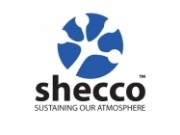Case studies from Arneg, CAREL, Carrier, Dearman, Embraco, Emerson, Frigo Consulting, Panasonic, RLS and Tecumseh will be presented at ATMOsphere Europe 2017 in Berlin, Germany.

The ATMOsphere Review Panel is pleased to announce the final round of case study selections for ATMOsphere Europe 2017 on 25-27 September in Berlin.
The presentations are:
Arneg | Comparison between real plants using R744 with ejector and parallel compressor and a conventional R134a/R744 cascade in warm climates by Enrico Zambotto
The comparison is based on one year results data collection and correlates the energy consumption of a conventional cascade R134a / R744 plant with a booster system using R744 and fitted with the latest energy performance enhancement solutions.
The study compares how the parallel compressor and ejector can be used to bring similar or better performance than using R134a / CO2 cascade systems, even in temperate climates. The case study will talk about plant specifications, environmental impact of each of the two solutions and energy performance & efficiency.
CAREL | Exceptional performance and natural efficiency for beverage coolers by Giovanni Tonin
The beverage cooler segment is facing important challenges expected by both regulations and beverage companies to reduce environmental impact, made high due to the volumes and spread of these types of refrigeration units. This case study will present Heez, a high-efficiency solution for refrigerated merchandisers in which CAREL brings together and anticipates cutting-edge technologies to exceed the efficiency expectations of this market segment, ensuring incredible performance in both steady state and pull down modes.
This study presents the results achieved when using Heez, in terms of energy consumption, performance and environmental impact, in different energy classes and for different types of use.
Carrier | Further enhancements in the application of modulating ejectors by Dominique Giraud
Over the past 10 years, Carrier has pioneered the development of the natural refrigerant CO2 for use in food retail and industrial refrigeration applications. Carrier will present the results of the latest developments of their modulating ejector technology.
Dearman | Enabling a subcritical CO2 vapour cycle using cryogenic cooling by Freddie Wilson
The Dearman Engine is a highly efficient Rankine-cycle piston engine powered by the phase-change expansion of liquid air or liquid nitrogen. When used in refrigeration applications, the system uses both the latent heat of vapourisation of the liquid nitrogen, and a secondary vapour cycle driven by the Dearman engine to provide cooling, whilst a secondary fluid circuit is used to both cool the vapour cycle condenser and improve the efficiency of the expander.
This case study describes the potential benefits of a Dearman transport refrigeration unit (TRU) using CO2 as a natural refrigerant in the vapour cycle. Low condensing temperatures are achievable using cooling from the liquid nitrogen, enabling the system to operate sub-critically in all ambient conditions.
Embraco | Next generation of 2HP compressor optimised for R290 by Marek Zgliczynski
It will be designed for optimum performance with propane. Propane, as natural refrigerant, plays very important role in ongoing process of HFC phase down. Due to its excellent thermodynamic properties, it allows to design super efficient alternative to the old HFC products. The article will present technical solutions adopted to reach both, very high specific cooling capacity and top efficiency level of its class, including specific applications comparative testing.
Emerson | Compact CO2 refrigeration unit in commercial application by Markus Lenz
The presentation introduces an efficient commercial refrigeration solution operating with the natural refrigerant CO2. Energy consumption data generated from a real application is compared to data measured in a test laboratory. Based on this the expected seasonal efficiency is extrapolated and compared to the SEPR value as calculated according to EU Regulation 2015/1095.
Panasonic | CO2 Refrigeration system for small-format retail stores or walk-in cooler in Europe by Gaky Shimada
This presentation attempts to show how Panasonic is introducing CO2 refrigeration system for small format refrigeration in Europe. It is a challenge for Panasonic to introduce Japanese well-known CO2 refrigeration units to Europe which is the biggest HFC-free refrigeration system market.
RLS | Press-to-connect/flame free stainless steel solution engineered for CO2 Applications by Michael Duggan
This significant innovation will instantly reduce one of the barriers to more rapid CO2 system adoption of high initial costs while also providing a safer and more earth friendly install. Significant total installed cost and safety advantages over welded steel, brazed copper and brazed copper with impurities, system approaches will be illustrated. Michael will also share technical product information including; pressure performance, leak rates, explosive decompression and longevity testing carried out by highly accredited third party laboratories.
Tecumseh | Eco-friendly mini chiller for refrigeration
This case study will introduce an eco-friendly mini chiller using propane (R290) as the primary refrigerant and glycol as the secondary refrigerant. R290 has a high thermodynamic efficiency and uses 100% inverter motor compressors with a wide operating range, inverter driven pump (water flow control based on pressure) and brushless commutation fans.
